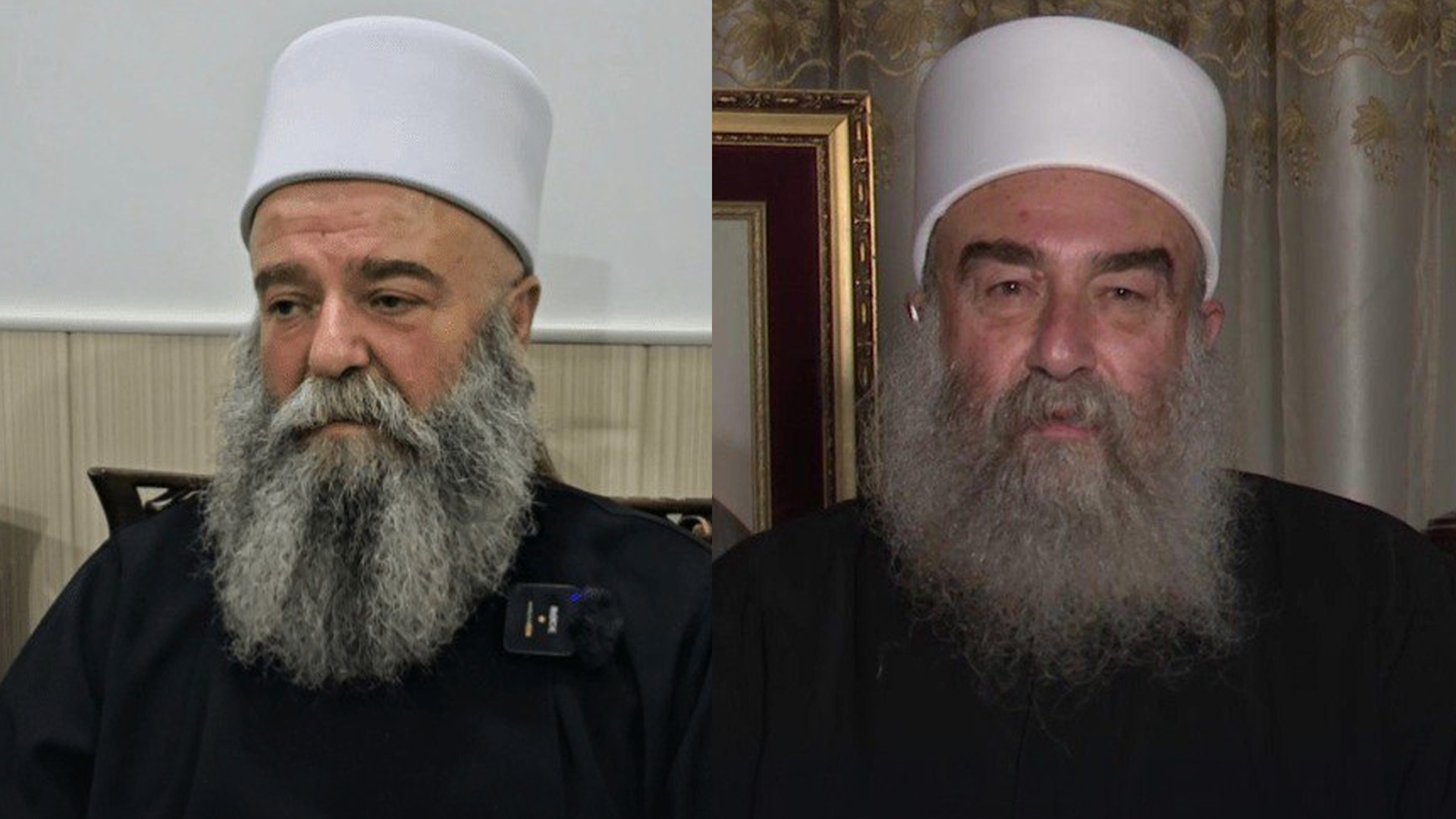Druze Leaders Divided Over Suwayda Ceasefire as Rift Emerges After Bloody Clashes
Suwayda's ceasefire reveals deep Druze divisions as spiritual leader Hijri rejects deal, urging armed resistance, while cleric Jarbou backs reconciliation. The fragile truce faces existential challenges from internal fractures amid Syria's unstable transition.

By Ahora Qadi
ERBIL (Kurdistan24) – Following the announcement of a ceasefire agreement between the Syrian government and Druze community representatives in Suwayda, sharp divisions have surfaced within the Druze leadership. While the truce aims to end a wave of deadly violence that claimed more than 300 lives, prominent Druze figures remain at odds over its legitimacy and implementation.
Spiritual Leader Rejects Ceasefire, Calls for Continued Armed Resistance
Sheikh Hikmat al-Hijri, one of the three spiritual head of the Druze community in Syria, publicly rejected the ceasefire and urged continued armed resistance against what he described as “terrorist criminal gangs.” In a statement addressed to Suwayda’s residents and defenders, Sheikh Hijri stated:
“We salute your spirit of bravery and dignity and call on you to continue confronting the terrorist criminal gangs that have come to annihilate our people. These groups have committed horrific crimes—murder, looting, burning homes, hospitals, and places of worship—without distinction between religion or age, between men and women.”
He emphasized that defending Suwayda is a “national, humanitarian, and moral duty,” and pledged to continue fighting until the province is fully liberated. Rejecting the legitimacy of the Syrian transitional government, he warned:
“There is no agreement or negotiation with these armed gangs falsely calling themselves a government. Any individual or party that engages with them unilaterally will face legal and social accountability, without exception or leniency.”
Sheikh Hijri also assured protection for any militants who choose to surrender: “Anyone who lays down their weapon will be under our protection, unharmed and unshamed—this is our moral code and the principles we were raised on.”
Yousef Jarbou Welcomes Truce in Recorded Statement
In contrast, Sheikh Yousef Jarbou, one of the three spiritual head of the Druze community in Syria, welcomed the ceasefire agreement in a video statement, expressing hope for reconciliation and peace. He described the accord as a critical step toward restoring security, ending bloodshed, and reintegrating Suwayda fully within the framework of the Syrian state.
“After the painful events in Suwayda and the heavy toll of martyrs and wounded,” Jarbou stated, “we reached an agreement with the Syrian state through rational leadership and communal efforts.”
Jarbou concluded by saying, “This agreement is a vital step toward rebuilding trust between Suwayda and the Syrian state. Our goal is a strong, united, and secure Syria for all its citizens, including our people in Suwayda, who remain an integral part of this cherished homeland.”
A Fragile Peace Amid Deep Internal Dispute
The diverging positions of Sheikh Hikmat al-Hijri and Yousef Jarbou highlight a growing rift within the Druze leadership over the future of Suwayda’s relationship with Damascus. As the province recovers from the deadliest escalation in years, the challenge ahead lies not only in securing peace but in navigating the internal fractures that threaten its stability.
